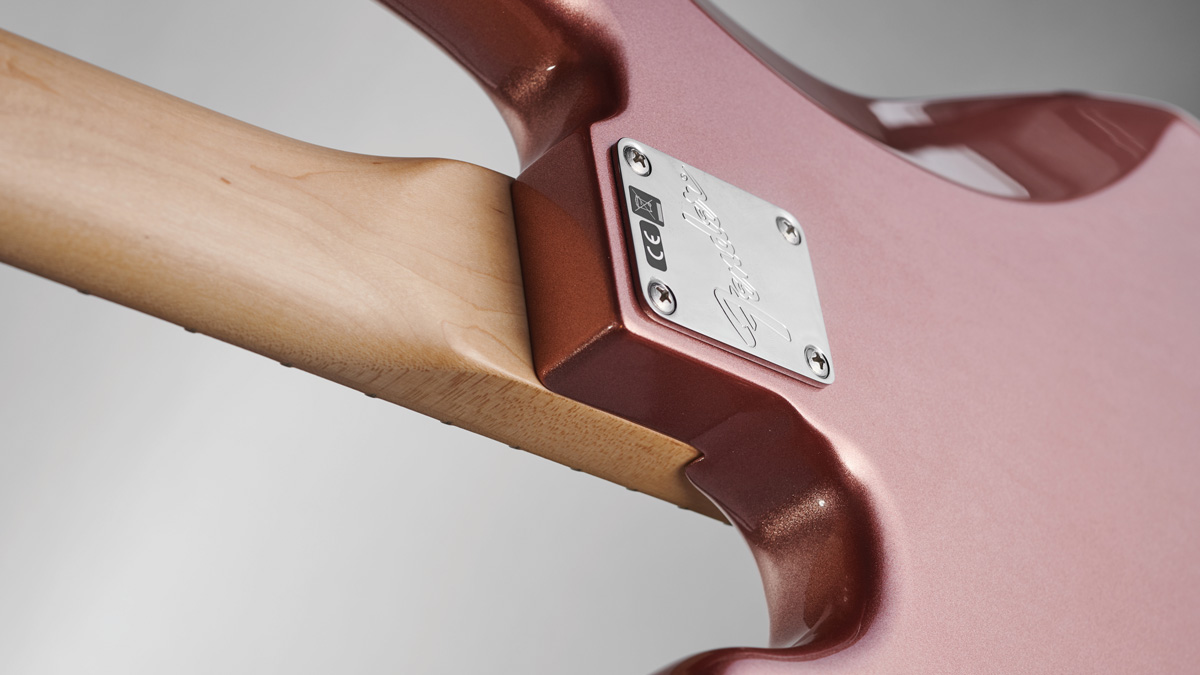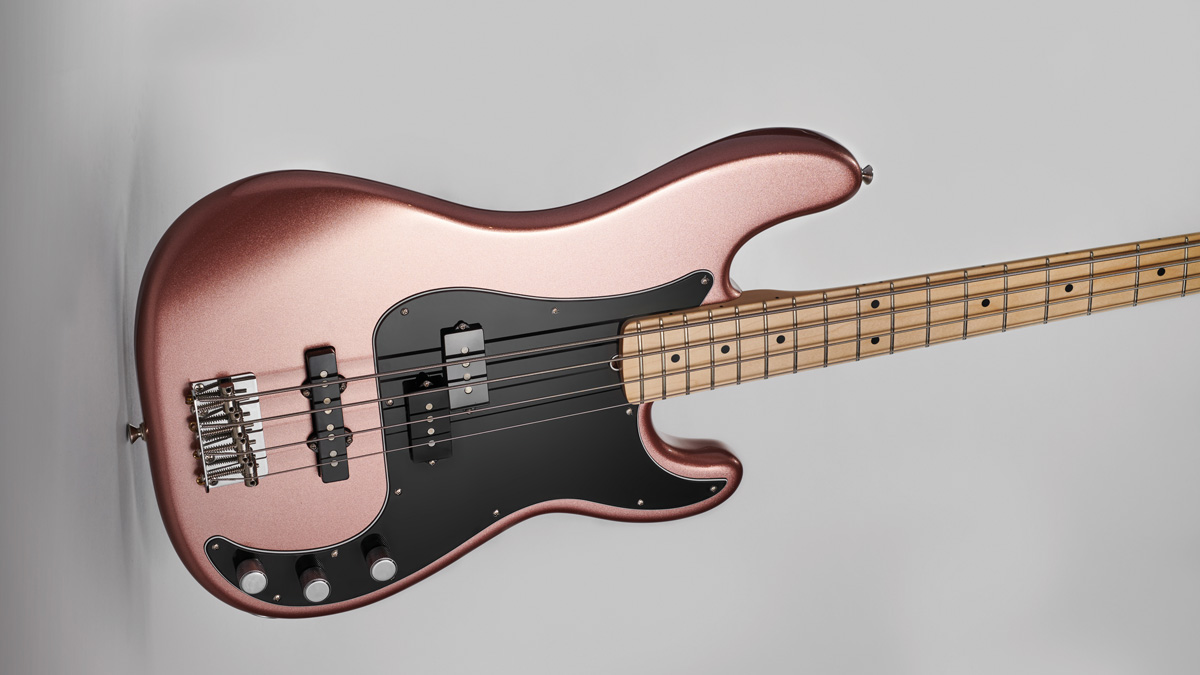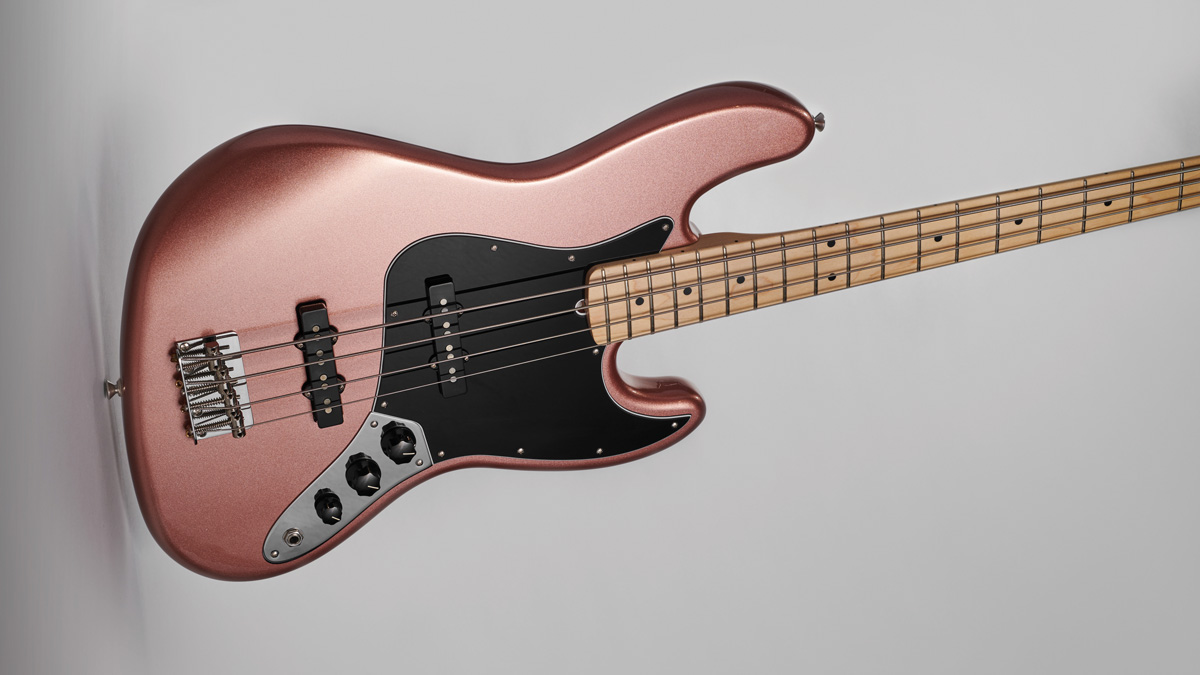MusicRadar Verdict
A reasonable update to the perennial favourites.
Pros
- +
Attractively modified tones, classic features.
Cons
- -
Attention to detail in the setup.
MusicRadar's got your back
We recently reviewed a Fender American Performer variant of the Mustang - and despite our initial reservations about yet another iteration of the well-worn formula, we liked it.
We’re now presented with the big brothers of the bass guitar range. These keenly-priced instruments come in a fetching Metallic Penny shade that hints at a Seventies vibe - but do they bring more than vintage looks to the party?
- Explore our pick of the best bass guitars for all budgets
Build
All the features you would expect of a Precision and a Jazz Bass are on display, although you’ll note that the Precision has an additional single-coil pickup fitted in the bridge position. These basses share many features: three-ply black scratchplates; nickel and chrome hardware; three-control layouts (volume, volume and tone); tapered-shaft elephant-ear machine heads; and slotted bridge saddles offering 19mm/0.75” string spacing.
The bodies exhibit sympathetic rear contouring, with light chamfering to the top body bout and excellent access to the upper frets of the maple fingerboards courtesy of the lower cutaways. Both necks feature a four-bolt attachment, while the neck pockets are tight and both necks feel very secure and solid. Both instruments come with a gloss polyurethane finish applied to the body and a satin urethane coating to the maple necks.

The familiar differences between the Precision and Jazz bass necks remain in place. The Precision is a bulkier, modern C-shaped neck, while the Jazz Bass is sleeker, with tighter string spacing at the nut. The Precision exhibits very little headstock bias off the strap while the Jazz, despite being lighter, shows some minor balance issues.
Neither bass has sharp fret ends; the hardware is firmly attached and the machine heads and controls feel solid and turn smoothly. Both basses use black dots as position markers on the fretboard and side of the neck. Everything is in order so far…
Sounds
Tonally, you might think the only difference between the P and J would be accounted for by the neck pickups - the Precision should sound a little more thorough, with a meatier tone, while the Jazz should be tighter and more refined. Plugging in challenges these assumptions, however. The Precision doesn’t lack for brightness - and all the familiar P/J setup tones are on offer. The Greasebucket tone system, where adjusting the tone doesn’t boost the lows or lower the gain when the treble is cut, works very well, giving the Precision extra clarity. The Jazz Bass, on the other hand, has quite different tones: the legendary throatiness and rasp are very much in evidence. With the tone control wide open, the tone is bright and sparkly, which lends itself well to slapping and plucking.
Want all the hottest music and gear news, reviews, deals, features and more, direct to your inbox? Sign up here.

Both basses suffer from the eternal Fender control issue, which simply drives us mad. Why fit volume and tone controls that do very little between the minimum and maximum points of the control turn? Effectively, the controls are either on or off, with virtually no change in between, although admittedly the Precision offers a little more tonal colour than the Jazz. Cheaper instruments have addressed this issue, so why do Fender persist with this?
Both basses have much to offer the player - but both require attention to set up, particularly the action of their strings, which is on the high side. The necks are accommodating to the fretting hand, while feeling quite different from one another. Players of all persuasions should find something to please them with either instrument, although if passive basses don’t float your boat, we can’t see either of these instruments changing your perception.
These are fine instruments that require just a little fine-tuning to make them play really well. We’d happily use either, as they look good, feel good and offer familiar tones that work in most contexts. What’s more, the prices are far from prohibitive.
